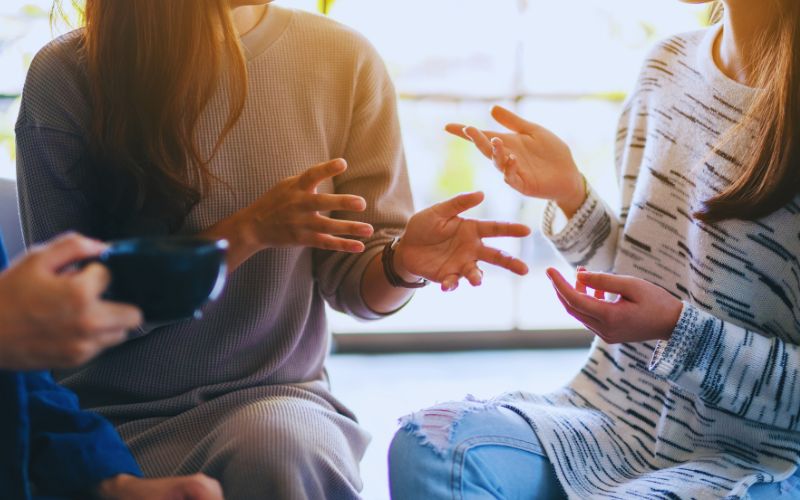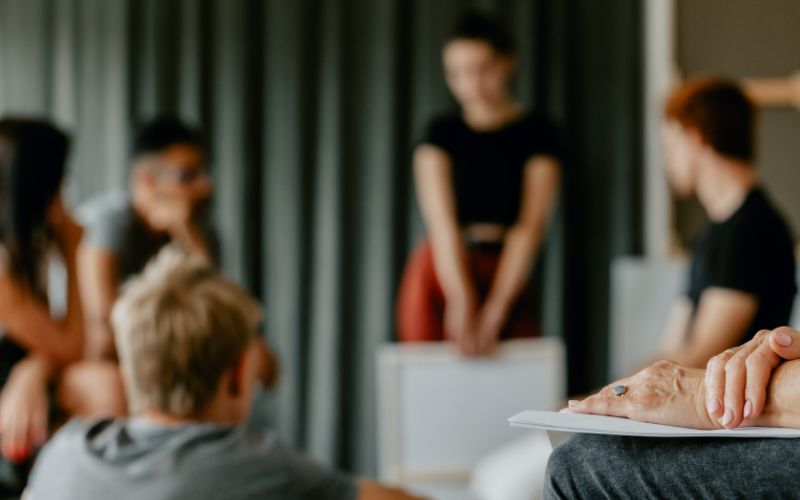If you have decided you have a problem and want to get help, you have already taken the first step. You have discovered–as it says in the Big Book–that alcohol is cunning, baffling, and powerful.
There are some simple directions AA members follow in order to stop drinking and stay stopped. These principles are AA’s program of recovery. They can work for you as effectively as they have worked for others. Below are some suggestions we feel will be of help to you on your path to recovery.

There are meetings all over New Hampshire for you and every alcoholic who wants help. In addition, virtual technologies make it possible to join online meetings and connect with other AA members from the next town, across the country, and worldwide. AA is available whenever you want to attend a meeting.


As you attend meetings, you will find people are willing to give you their phone numbers. They genuinely hope you will call – assisting newcomers helps them stay sober, too. When you cannot easily get to a meeting, the phone numbers of AA friends are invaluable.
In emergencies, you may want to call the NHAA Helpline (800-593-3330), which is available 24 hours a day. Help is available when you need it.


It is said that the average practicing alcoholic affects the lives of at least five other people. Alcoholism is a family illness. We find that the family that gets sick together can often recover together. Share your program of recovery with them.
Bring your spouse, friends, family members, and others who care about you to hear the stories of AA speakers. Closed meetings are marked with a “C” in our meeting list; all other meetings are open.
AA groups and districts sponsor special dances, picnics, workshops, conferences, and other social activities for AA members and their families.
AI-Anon Family Groups are for anyone worried about someone with a drinking problem. They hold meetings just like AA groups. They use AA’s twelve steps of recovery to help them understand the alcoholic and to adjust and improve their own lives.
Here are a few books which explain the AA program of recovery:
These books contain important information and are great resources. They can be a constant source of inspiration and understanding. Many of us begin our day with “quiet time” and by reading a paragraph or chapter from one of them. They are the basic sources of our program of recovery.
Here are 3 ways to begin exploring AA’s literature:
Many AA meetings (both in-person and online) include reading through some of AA’s most important literature. This is a great way to dive into the material with other people who can answer questions and share their experience, strength, and hope about the topic.
AA literature is available at the Area 43 Service Office in Hooksett, NH. We also offer an online store through our website. You will find that many AA meetings have pamphlet racks and a book table. Reading AA literature can be helpful to you as you travel the road to happy sobriety.
The AA Grapevine is our monthly magazine – many call it our “meeting in print.” Each issue contains helpful articles for the alcoholic who wants to get well and stay that way. Print subscriptions and a digital app are available at a minimal cost – as well as a free podcast.
A home group is a meeting that a member regularly attends and considers their primary meeting—fondly known as the “home” group. This group serves as the central point of AA community involvement, providing a consistent support network. Members often feel a sense of commitment and belonging to their home group, where they take on responsibilities, participate in service roles, and build strong connections with other members. Finding a home group is essential in fostering a stable and supportive environment for ongoing recovery.

You’ve made a great beginning! We hope you find these suggestions helpful on your journey to a happy, joyous, and sober life!
Remember, you never have to be alone if you use the tools AA offers you.
Selecting "Ok" will redirect you from the NHAA.net site to an outside resource; selecting "Cancel" will allow you to remain on our site.
NOTICE ABOUT EXTERNAL LINKS
This website links to other websites, including those affiliated with other organizations. Linking to any other website, including but not limited to websites affiliated with other organizations inside the Alcoholics Anonymous (A.A.) service structure, does not constitute the endorsement, sponsorship, or approval of such other website by the New Hampshire Area Assembly (NHAA), or any products, services, or content displayed, provided, promoted, or offered by such other website. Please be aware that NHAA is not responsible for the content, practices, policies, or methods of any other website, including, without limitation, any other website's collection, dissemination, use, and protection of personal information, its use of tracking technology, or its level of computer security. Additionally, NHAA cannot attest to the accuracy, relevancy, timeliness, legality, or completeness of information provided by any other website.